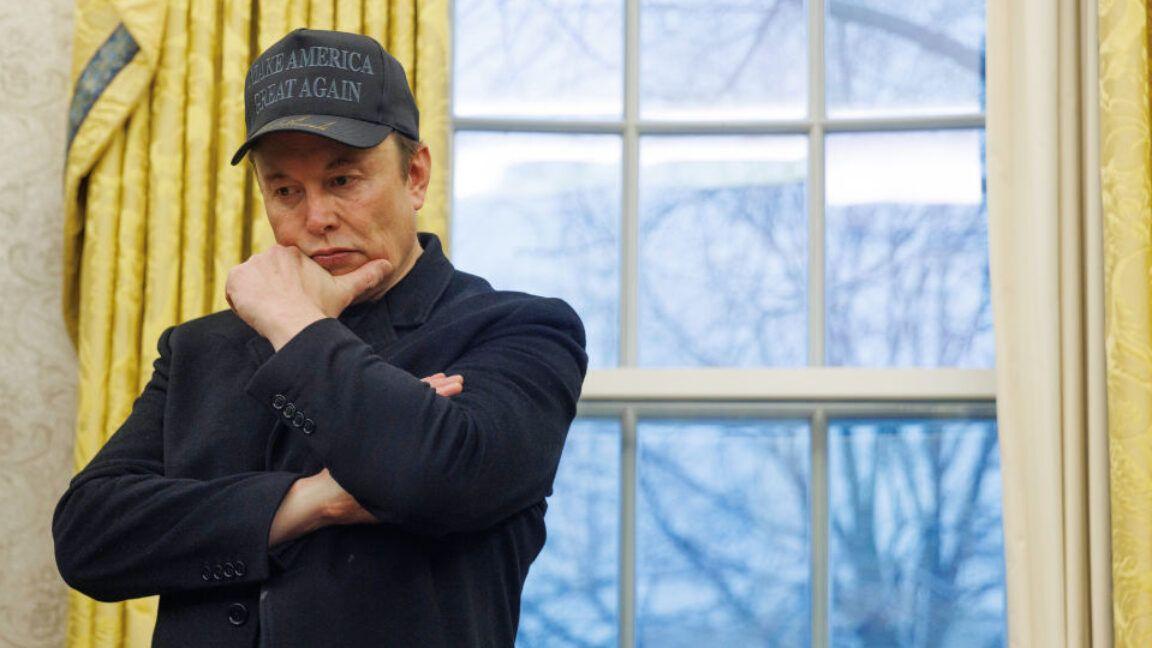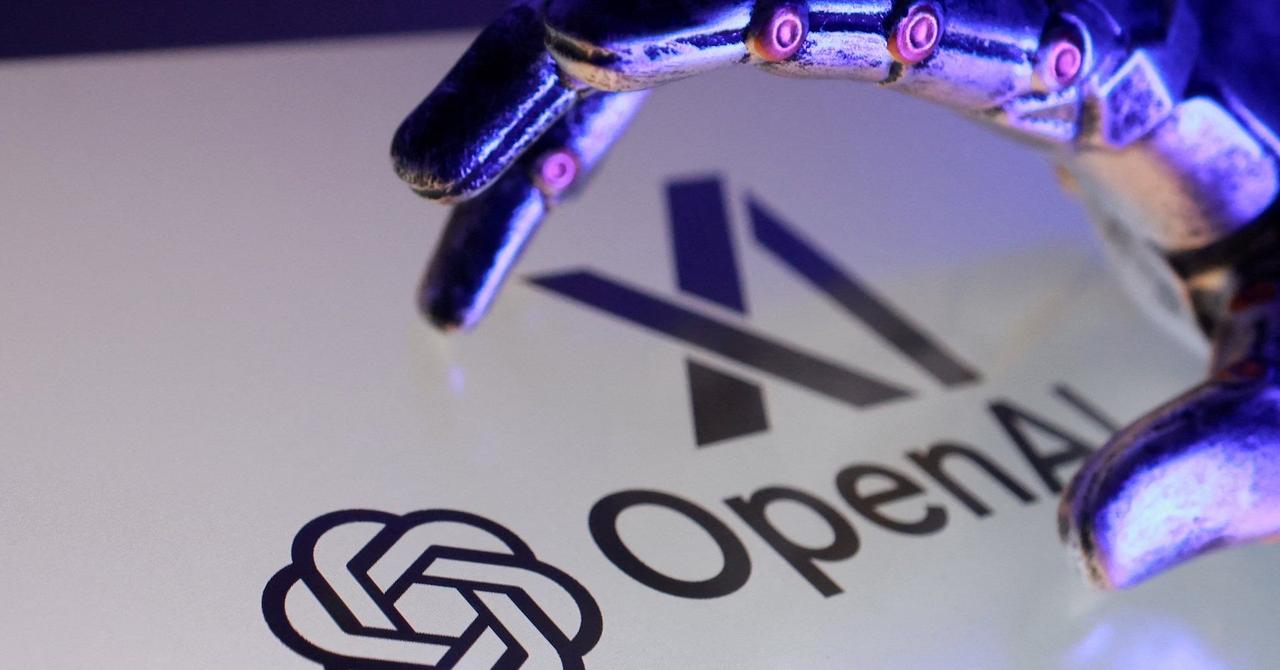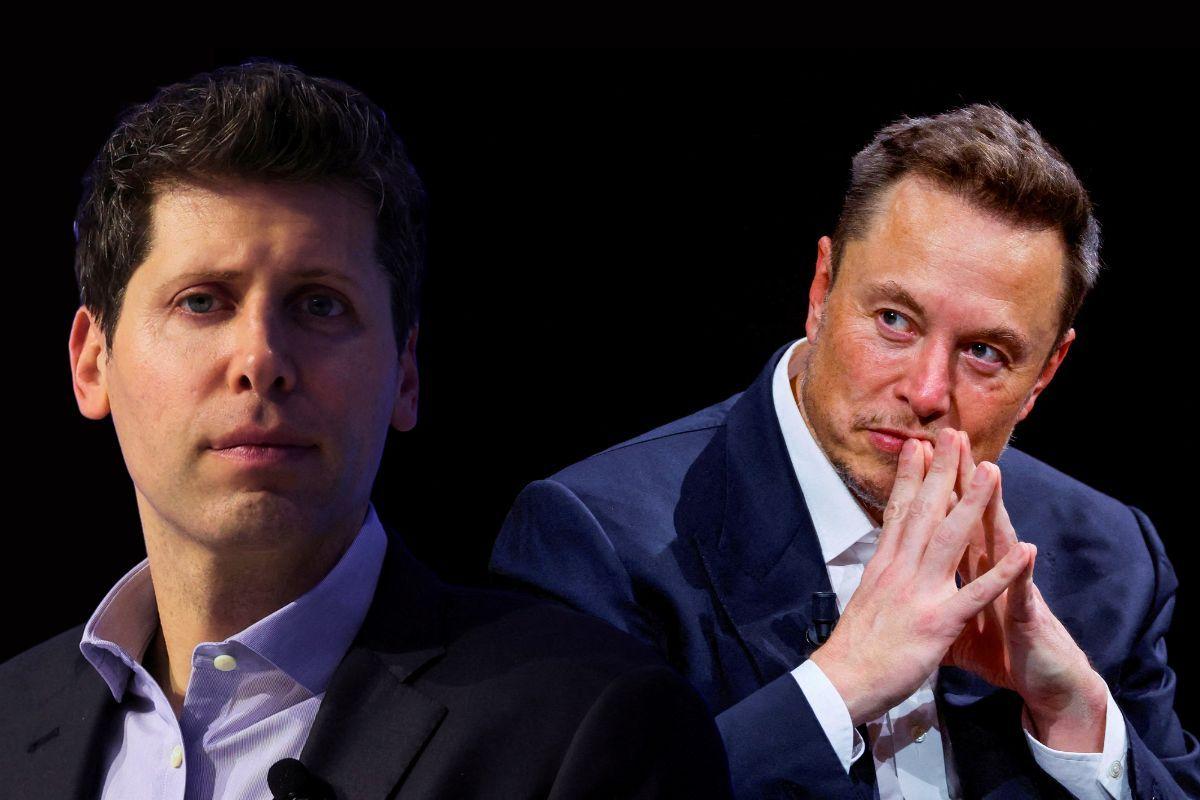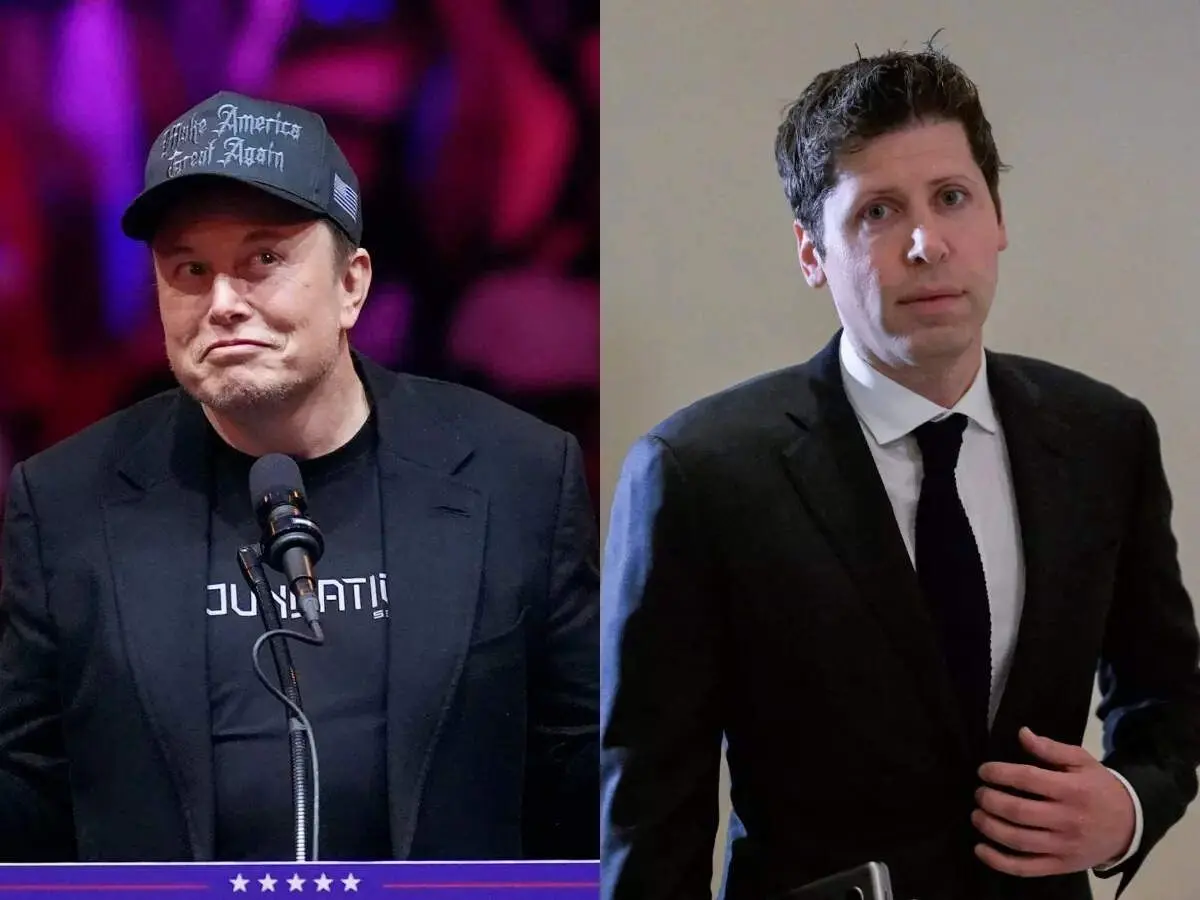Elon Musk's xAI Secures Temporary Restraining Order Against Former Engineer in OpenAI Dispute
2 Sources
2 Sources
[1]
Musk's xAI wins early order blocking engineer from sharing tech with OpenAI - The Economic Times
US District Judge Rita Lin in San Francisco on Tuesday issued a temporary restraining order at the request of xAI that prohibits Xuechen Li from having any role or responsibility at OpenAI pertaining to generative AI.Elon Musk's artificial intelligence startup xAI has won a court order temporarily blocking a former xAI engineer from working on or even communicating about AI technology with his new employer, ChatGPT maker OpenAI. US District Judge Rita Lin in San Francisco on Tuesday issued a temporary restraining order at the request of xAI that prohibits Xuechen Li from having any role or responsibility at OpenAI pertaining to generative AI. Musk's xAI last month accused Li in a lawsuit of taking trade secrets related to "cutting-edge AI technologies with features superior to those offered by ChatGPT" to his new job at OpenAI. OpenAI and a lawyer for Li did not immediately respond to requests for comment, and neither did xAI. OpenAI is not a defendant. The lawsuit underscores a race in Silicon Valley among major technology companies to gain AI market share and hire talent for artificial intelligence systems. In a separate case, Musk's xAI company last month sued Apple in federal court, accusing it of illegally conspiring with OpenAI to suppress rival platforms. Musk is also suing OpenAI over its conversion to a for-profit company. OpenAI countersued Musk in April for harassment. The lawsuit against Li said he started work at xAI last year and helped to train and develop its chatbot Grok. Li took its trade secrets in July, after accepting a job from OpenAI and selling $7 million in xAI stock, according to the lawsuit. Li was barred in Lin's order from having any communication for now about generative AI "with any officer, director, employee, agent, supplier, consultant, or customer of OpenAI." Lin said the order will last until "xAI has confirmed that all of xAI's confidential information in Li's possession, custody, or control has been deleted." The judge set a hearing for October 7 to consider whether a longer order should be imposed. The case is xAI Corp v. Xuechen Li, US District Court, Northern District of California, No. 3:25-cv-07292-RFL.
[2]
Elon Musk: Restraining Order Over AI Trade Secrets Explained
Elon Musk's artificial intelligence startup xAI has won a court order blocking a former employee from collaborating with rival OpenAI. | Credit: Mark Brake / Stringer / Getty Images. * A California court has granted a temporary restraining order preventing Xuechen Li from working for OpenAI. * Xuechen Li previously worked on Grok for xAI, which has accused him of stealing trade secrets. * Trade secrets protect xAI's model weights, training data, tuning methods, system prompts, and more. Elon Musk's artificial intelligence startup xAI has won a court order blocking a former employee from collaborating with rival OpenAI. The restraining order deepens the ongoing feud between xAI and Xuechen Li, who left the company for a new role at OpenAI in August. xAI Accuses Departing Engineer of Stealing Trade Secrets In a lawsuit filed in California last month, xAI accused one of its founding team of engineers who worked on Grok of "willful and malicious misappropriation of xAI's confidential information and trade secrets." The lawsuit states that Xuechen Li copied trade secrets from his company laptop to personal storage systems, in violation of the terms of his employment. These allegedly included "cutting-edge AI technologies with features superior to those offered by ChatGPT and other competing products." According to xAI, Xuechen Li copied trade secrets the same day he received millions of dollars in company stock. Three days later, he "suddenly resigned," the suit states. Appealing to the Defend Trade Secrets Act In seeking to prevent Xuechen Li from exposing trade secrets to a rival, xAI appealed to the Defend Trade Secrets Act (DTSA), a 2016 law that allows owners of trade secrets to sue in federal court when those secrets are misappropriated. The DTSA permits court injunctions "to prevent any actual or threatened misappropriation" of plaintiffs' trade secrets. In the case of xAI vs. Xuechen Li, Judge Rita Lin issued a temporary restraining order that prohibits the defendant from "having any role or responsibility" at OpenAI pertaining to generative AI. The order will remain in effect until xAI confirms that trade secrets in Xuechen Li's possession have been deleted. A hearing to determine whether the order should be extended or modified is scheduled for Oct. 7. Relevant Case Law The first company to win a verdict under the DTSA was Dalmatia Import Group, which successfully sued a former contractor for stealing its fig jam recipe in 2017. Since then, the law has increasingly been applied to technology workers who abscond with sensitive files. If forensic evidence proves that employees copied trade secrets, courts have even been willing to impose restrictions after the relevant files have been deleted. For example, in Waymo vs. Uber, the court ordered that Uber could not assign a former Waymo engineer to oversee or direct lidar development, even though he claimed the files at the center of the case had been deleted. Uber later fired the employee in question following an internal investigation into the dispute. Based on this precedent, xAI likely has a strong case, even in a Californian venue, where case law tends to favor employee mobility more than elsewhere.
Share
Share
Copy Link
A California court has granted xAI a temporary restraining order against former engineer Xuechen Li, preventing him from working on generative AI at OpenAI amid accusations of trade secret theft.
xAI's Legal Victory Against Former Engineer
Elon Musk's artificial intelligence startup, xAI, has secured a significant legal victory in its ongoing dispute with a former employee. U.S. District Judge Rita Lin in San Francisco issued a temporary restraining order against Xuechen Li, prohibiting him from working on or communicating about generative AI technology with his new employer, OpenAI .
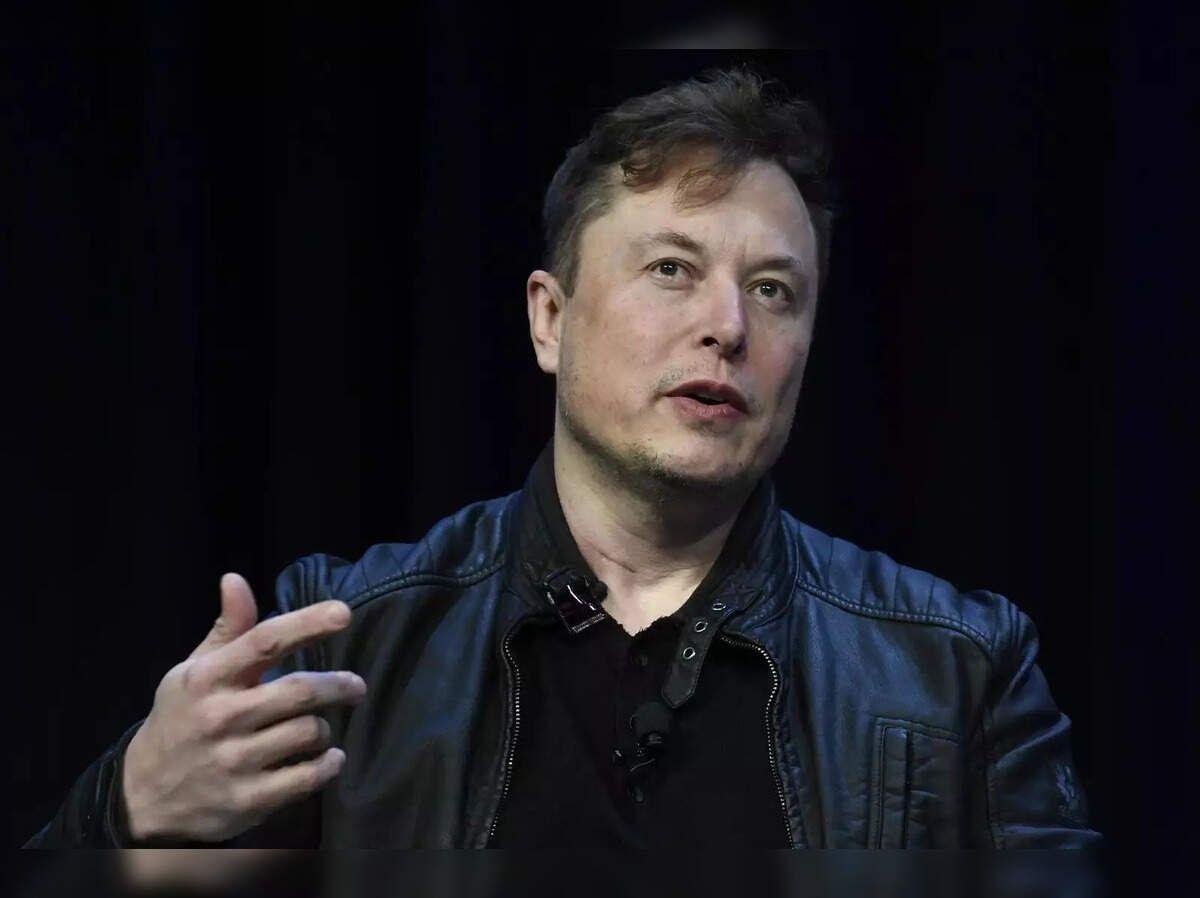
Source: ET
Allegations of Trade Secret Misappropriation
The lawsuit, filed last month, accuses Li of misappropriating trade secrets related to "cutting-edge AI technologies with features superior to those offered by ChatGPT"
1
. xAI claims that Li copied confidential information from his company laptop to personal storage systems on the same day he received millions of dollars in company stock, violating the terms of his employment2
.The Restraining Order
Judge Lin's order specifically bars Li from:
- Having any role or responsibility at OpenAI pertaining to generative AI
- Communicating about generative AI with any officer, director, employee, agent, supplier, consultant, or customer of OpenAI
1
The order will remain in effect until "xAI has confirmed that all of xAI's confidential information in Li's possession, custody, or control has been deleted"
1
.Legal Framework and Precedents
xAI's case relies on the Defend Trade Secrets Act (DTSA) of 2016, which allows owners of trade secrets to sue in federal court when those secrets are misappropriated. The DTSA permits court injunctions "to prevent any actual or threatened misappropriation" of plaintiffs' trade secrets
2
.Previous cases have set precedents for courts imposing restrictions even after relevant files have been deleted. For instance, in the Waymo vs. Uber case, the court ordered that Uber could not assign a former Waymo engineer to oversee lidar development, despite claims that the files in question had been deleted
2
.Broader Implications for the AI Industry
This case underscores the intense competition in Silicon Valley for AI market share and talent. It highlights the measures companies are willing to take to protect their intellectual property and maintain their competitive edge in the rapidly evolving field of artificial intelligence
1
.Related Stories
Other Legal Battles Involving xAI and Musk
The lawsuit against Li is not an isolated incident in Musk's legal pursuits related to AI:
- xAI recently sued Apple, accusing it of illegally conspiring with OpenAI to suppress rival platforms
- Musk is suing OpenAI over its conversion to a for-profit company
- OpenAI countersued Musk in April for harassment
1
Next Steps
A hearing is scheduled for October 7 to determine whether a longer-term order should be imposed
1
. The outcome of this case could have significant implications for employee mobility and the protection of trade secrets in the AI industry.As the AI race intensifies, legal battles over intellectual property and talent are likely to become more frequent, shaping the landscape of AI development and competition in the coming years.
References
Summarized by
Navi
[1]
Related Stories
Recent Highlights
1
ByteDance's Seedance 2.0 AI video generator triggers copyright infringement battle with Hollywood
Policy and Regulation

2
Demis Hassabis predicts AGI in 5-8 years, sees new golden era transforming medicine and science
Technology

3
Nvidia and Meta forge massive chip deal as computing power demands reshape AI infrastructure
Technology

